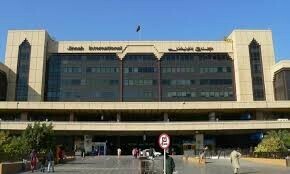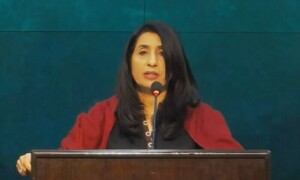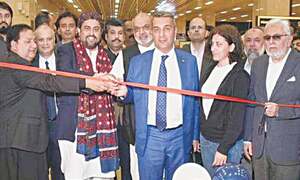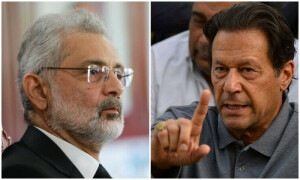ISLAMABAD: Chief Justice of Pakistan (CJP) Asif Saeed Khosa on Monday stressed the need for taking the treason trial against former president retired Gen Pervez Musharraf to a logical end for removing an impression that powerful people in the country were above the accountability process.
He was heading a three-judge Supreme Court bench that took up a petition filed by a former president of the Lahore High Court Bar Association, Taufiq Asif. The petition sought intervention of the apex court in the treason trial being heard by a special court, pointing out that the proceedings of the case against Mr Musharraf had come to a halt.
CJP Khosa regretted that the manner in which the treason trial against Mr Musharraf for imposing the state of emergency on Nov 3, 2007 had been dealt with had added a new chapter to the country’s political history.
During the hearing, he also cited the example of British dictator Oliver Cromwell whose skeleton was exhumed from his grave and hanged after a trial against him for dismissing an English parliament in 1653.
The trial against Cromwell went ahead by framing the charges to his skeleton and considered that the body was denying all allegations. The trial then pronounced hanging till death.
SC to intervene if special court fails to decide case
Mr Musharraf went to the United Arab Emirates for treatment of his spinal injury in March 2016 and since then he has been living abroad.
Since the special court is resuming the hearing of the treason trial against Mr Musharraf on March 28, the SC has decided to let the trial court decide its future course, especially when Mr Musharraf was not coming back to the country to record his statement under Section 342 of Criminal Procedure Code.
In case the trial court failed to come out with a solution, the Supreme Court would intervene and take the matter into its own hands on April 1, the bench decided.
In the meanwhile, senior counsel Salman Safdar, who is representing Mr Musharraf, will seek instructions from his client about his plans to return to the country and record his statement before the trial court.
At the last hearing on March 7, the SC had ordered the registrar of the special court to furnish a report on the progress made and the reasons for the delay in the trial.
During the hearing on Monday, the CJP observed that courts could not be kept hostage merely because someone had no intention to return to the country. Recalling the chain of events during the trial against Mr Musharraf, CJP Khosa regretted how the direction of a vehicle carrying Mr Musharraf was changed when he was coming to appear before the trial court, how he was admitted to a hospital and the court was furnished with ambiguous and vague medical reports and how he was allowed to go abroad.
The CJP said that nobody could dictate his terms to courts, adding that courts could not be kept hostage and people could not deliberately avoid court proceedings.
Without naming anyone, CJP Khosa regretted that cases like the trial against Mr Musharraf had adverse effects on the cases against other people.
Before the court, the CJP observed, there were three possibilities — either Mr Musharraf should appear before the trial court, record his statement through Skype or a social media application or record his statement through his counsel.
In case, he added, all the three options were not acceptable to Mr Musharraf then the trial court could proceed by considering answers to all of its questions as “denied”.
The CJP, however, hastened to add that the apex court was not giving any directive to the trial court. He said the trial court should proceed on its own.
Additional Attorney General Sajid Ilyas Bhatti told the court that all attempts to extradite Mr Musharraf or bring him back to the country through Interpol had been in vain. The court noted that the registrar of the special court in his report had stated that the testimonies of witnesses had been recorded and Mr Musharraf had been declared absconder.
Petitioner Asif argued that Mr Musharraf was very well which could be gauged from the fact that he was giving interviews and was even seen dancing in a video.
The CJP recalled that after the last hearing of the treason trial he was expecting that Mr Musharraf would again be admitted to hospital, adding that his apprehension was proved right.
He said he had heard that the former president had been discharged from hospital on Monday.
Mr Musharraf’s counsel Salman Safdar opposed the idea of recording his statement through Skype by arguing that the political career of the former president had come to an end.
He said Mr Musharraf could not appear before the court in view of his nervous disposition, adding that the former president lost his focus while talking on phone.
The CJP recalled that Mr Musharraf had given very convincing interviews against the backdrop of recent standoff between Pakistan and India.
He observed that if the law was silent about some situation, the Constitution provided a way out in the shape of Article 187 to do complete justice.
During the hearing, the court decided that Justice Yahya Afridi, one of the members of the bench, would not be a part of the bench when the case would be taken up again on April 1 since he had recused himself from being part of the special court hearing the treason trial against Mr Musharraf.
Published in Dawn, March 26th, 2019















































Dear visitor, the comments section is undergoing an overhaul and will return soon.